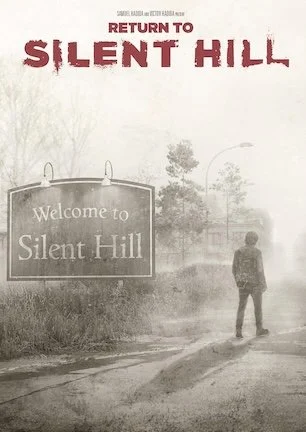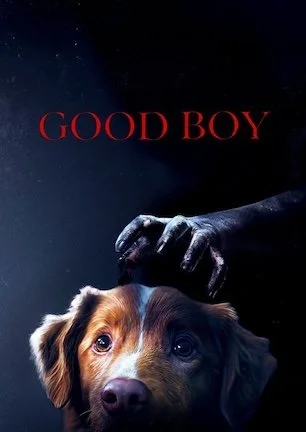Studio: IFC Midnight
Director: Adam MacDonald
Writer: Adam MacDonald
Producer: Jonathan Bronfman, Victoria Sanchez-Mandryk
Stars: Laurie Holden, Nicole Munoz, Chloe Rose, Eric Osborne, Romeo Carere, Bianca Melchior, James McGowan
Review Score:
Summary:
A troubled teen comes to regret her obsession with the occult after she summons a witch’s familiar to murder her mother.
Review:
Imagine possessing the power to make good on an idle “I wish you were dead!” threat, like the one so many disgruntled teenagers wish upon a frustrating parent. Obsessed with the occult since the death of her dad, Leah Reyes means it enough in the moment to conduct an occult ritual meant to murder her mother. Leah takes her witchcraft errata to the woods, cuts open her wrist, and hastily summons the malevolent entity Pyewacket to solve her parental problems. Almost as soon as she returns to the house, Leah wonders if she took her angst-ridden aggression too far.
Leah’s regret springs into full bloom when a near miss traffic accident, footsteps in the attic, and other ominous portents of evil suggest her black magic really worked. Mrs. Reyes unknowingly twists another knife of guilt by being extremely apologetic, making amends with Leah as both mother and daughter wrangle their altered dynamic in the wake of the aforementioned death. Clouded by fearful confusion as possibly paranormal activity subtly seeps into their home, Leah cannot be certain if she needs to rescue her mother or her own sanity first.
How deeply you hook into the heart of “Pyewacket” probably depends on which of these two women you lean toward. Although I don’t have children, I’m of an age where I relate closer to Mrs. Reyes dealing with a difficult daughter than to Leah huffing about a parent who just doesn’t understand. Leah’s flimsy grounds for justifying supernatural homicide push me further onto her mom’s side, and that’s not the optimal place to be because “Pyewacket” aligns its predominant POV with Leah’s.
Accolades for exceptional acting go to Laurie Holden’s multifaceted embodiment of Mrs. Reyes, crafted as much from what the characterization deliberately doesn’t do as what it does. Mrs. Reyes isn’t an outright evil bitch. The wine on her nightstand and exhausted expression of, “do whatever you want, I don’t care” before curling up in tears tells us she has her own unhealthy way of dealing with her husband’s passing. She’s broken. She needs a new start in a new location. That means uprooting Leah too, but Mrs. Reyes’ need for emotional stability reads as more critical than Leah maintaining friendships with three classmates whose mutual interests in music and dark arts aren’t enough to forge their bonds as unbreakable.
Mrs. Reyes isn’t completely inconsiderate of Leah in this circumstance either. She is willing to work with her daughter while Leah stubbornly refuses to meet her halfway.
When Leah balks at the suggestion of waiting until after the holiday break to change schools, mom takes compromise terms further by offering to let Leah finish the full year, even though this requires driving her daughter one hour in each direction for eight months. That’s more effort than one might expect from a mother that a teen comes to view as a monster.
Not that “Pyewacket” means to paint Mrs. Reyes that way. Writer/director Adam MacDonald has to walk a delicate tightrope to even the balance between affectionate concern and selfish strictness, which is why Holden’s pitched performance becomes so crucial. Both sides to her personality must make sense, and they mostly do. It’s Leah’s kneejerk reaction that comes off as more dramatically problematic.
Mrs. Reyes takes a turn that could be considered out of character considering everything up to that point. Born more from frustration with Leah’s sulking behavior than a fundamental personal flaw, Mrs. Reyes (I really wish the movie provided a first name to reference her by) and her daughter build up to a blowout culminating in terrible inferences that Mrs. Reyes might have it better without Leah around. It’s a harsh revelation, although it still takes a large leap to see things from Leah’s perspective when she elects to boomerang a verbal insult by summoning a demon.
I sympathize more with how tricky it is for “Pyewacket” to establish complications in this relationship than with Leah eventually realizing the error of her actions. The script doesn’t race Leah toward rectifying the horror she has seemingly wrought, which undercuts her characterization. While Mrs. Reyes offers repeated apologies and heartfelt attempts at reconciliation, Leah quiets considerably as she instead shoots nonplussed looks or avoids eye contact with mom altogether.
If “Pyewacket” externalized Leah’s internal conflict as well as it does her mother’s, the movie’s themes might resonate more. As is, those who synch with Leah’s limper pull in the tug-of-war game may find more satisfaction in the faulty family drama.
“Pyewacket” remains so laser focused on Leah and her mother that secondary characters serve as agents of exposition at best (specifically occult author Rowen Dove) and wayward wanderers in a story with nearly no use for them at worst (Leah’s lukewarm love interest Aaron). I always award special consideration to “Degrassi” alumni, so it’s great to see Chloe Rose, who is underrated in “Hellions” (review here), and Eric Osborne turn up in roles here. But infrequent appearances undermine their relevance to Leah, and their overall import is negligible.
Conversely, Adam MacDonald’s strongest storytelling skills are displayed in how unconventionally he cuts his scenes. Setups begin mid-conversation or sometimes seem to end prematurely, yet it never feels as though anything essential is missing. Rather, there is a sense of onscreen action appearing genuine, as though the camera is catching up to organic moments. The people in “Pyewacket” thus come across as existing outside of sequence starts and stops. This deepens the feeling of authenticity selling these characters and their situation as being in a relatable reality despite dark fantasy in the fiction.
Slow burn suspense infects occult overtones with suitable eeriness. However, my personal experience with “Pyewacket” felt more like a dry run with TV movie tameness in light of encounters with the nightmarish witchiness of “The Ritual” (review here) and “Hereditary” (review here), both of which share quite a lot in common with “Pyewacket.”
While this won’t be everyone’s result, particularly to those for whom the other two films aren’t fresh or are unfamiliar, I can’t help but feel as though Adam MacDonald has half of the components for creating a contemporary classic, but his material misses the meat that might meld scares and substance together. “Pyewacket’s” climax abruptly concludes just when it really starts to burn (literally), robbing us of a resolution where Leah must reconcile fully with the consequences of her foolishness. Mirroring the rashness of Leah’s misguided motivations, “Pyewacket” ultimately feels important while in motion, but much less thought through once level heads prevail.
Review Score: 60






While the 110-minute runtime could use a trim to maintain more energy, “Redux Redux” is an easy recommend for anyone who enjoys low-key sci-fi.